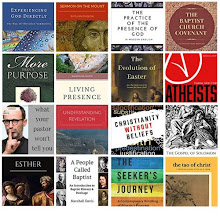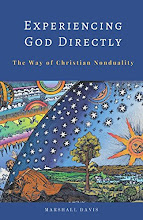Someone
asked me recently how I found time to write. I told them that it is how I pray.
Most people spend their time of daily devotions in prayer and reading. They
read scripture. They read devotional publications, like The Secret Place or The Upper
Room. They read spiritual books. I write.
That doesn't mean I don’t also read. I am always in the middle of four or five books. It is
not unusual for me sometimes to be reading ten books at the same time. I used
to have piles of books piled around my reading chair in various stages of literary
consumption. Nowadays my Kindle reader makes the space around my chair much
less cluttered. My wife is grateful.
Over the
years I have often returned to one of my favorite spiritual books: The Practice of the Presence of God by
Brother Lawrence. I have read this small volume dozens of times. Lawrence was a
French monk who lived in the seventeenth century. He wrote a book which I
consider to be one of the greatest spiritual classics of all time.
But he wrote
it a long time ago. English translations of the book have not kept up with the
changes in language. Most commonly his work is found in an anonymous translation
of the nineteen century. It is not easy to understand.
Therefore
for the last few months, during my time of morning devotions, I have been rendering
this great work into modern English. I have now published it under the title The Practice of the Presence of God in Modern English.
I was not
able to translate it from the French. Therefore it does not pretend to be a
scholarly work. It is a devotional labor of love. I did my best to translate the
nineteenth century British English into twenty-first American English. I took
it slowly – usually a paragraph a day. Sometimes I took only a sentence or two a
day, praying over the words and their meaning.
I have read Lawrence’s
words many times over the last forty years. His thoughts have shaped my
thoughts. His practice has become my practice. I prayed his words the way I
have prayed the psalms. As I prayed, I wrote his words in my words.
This is more
than a translation of words. For me, writing is a translation of the presence of
God into words. It is like prayer. Prayer – when one is forced to use human
language – is an incarnation of Spirit into human vocabulary.
Brother Lawrence incarnated
the Presence of God better than most followers of Christ. I hope this edition
of his book will help his words to be understood more clearly, so they may be translated
into human lives today.














